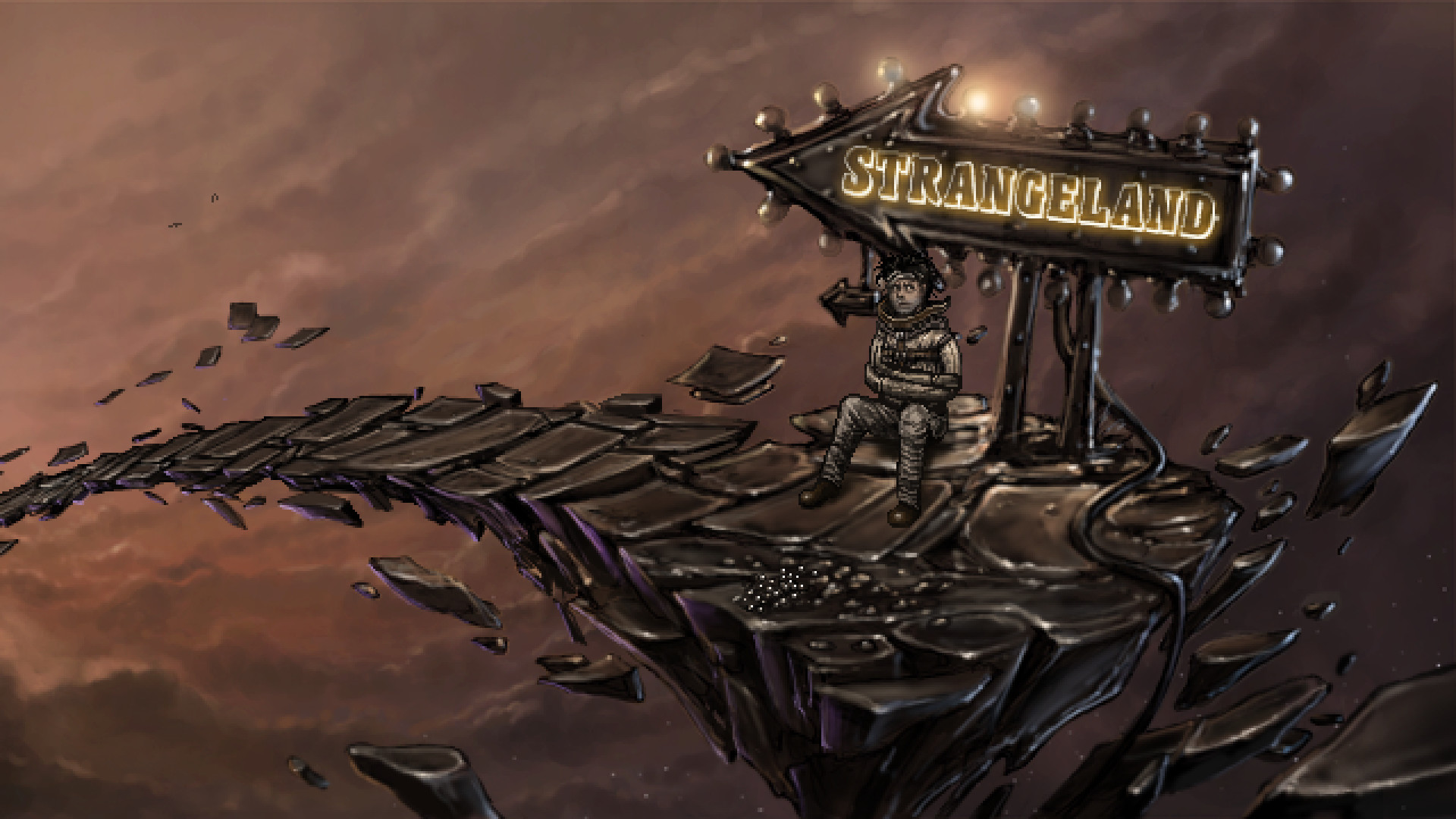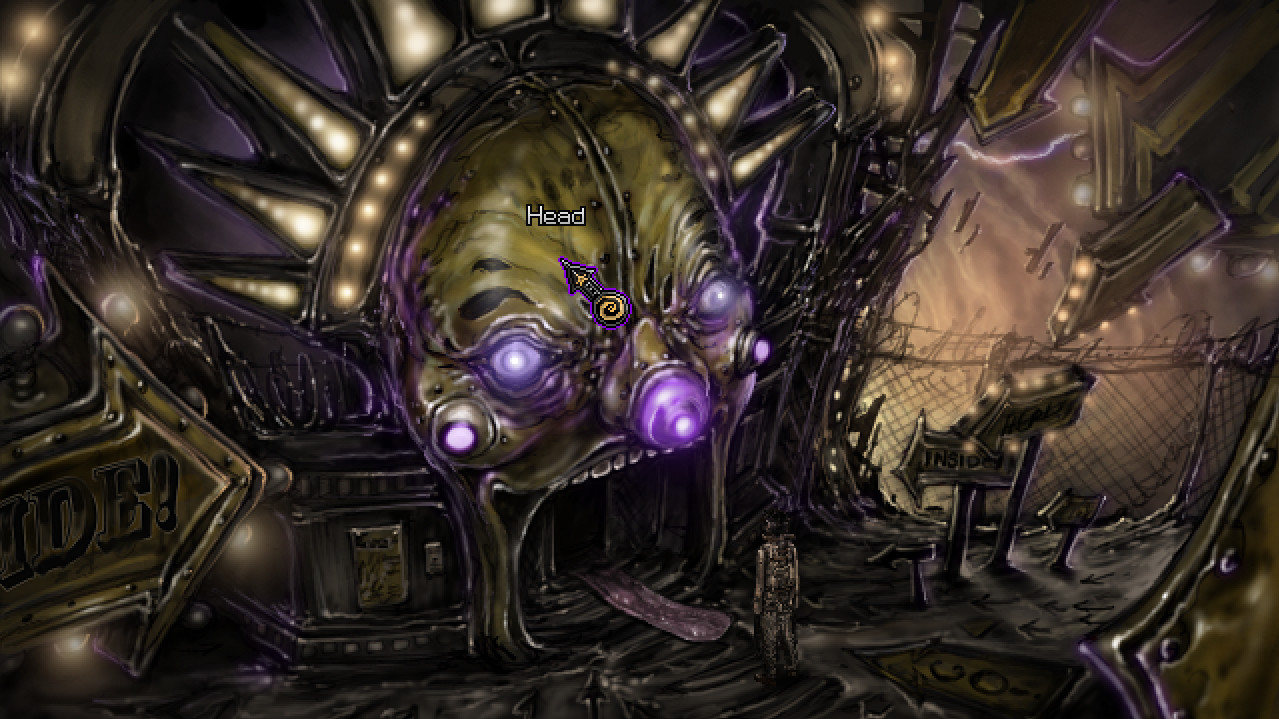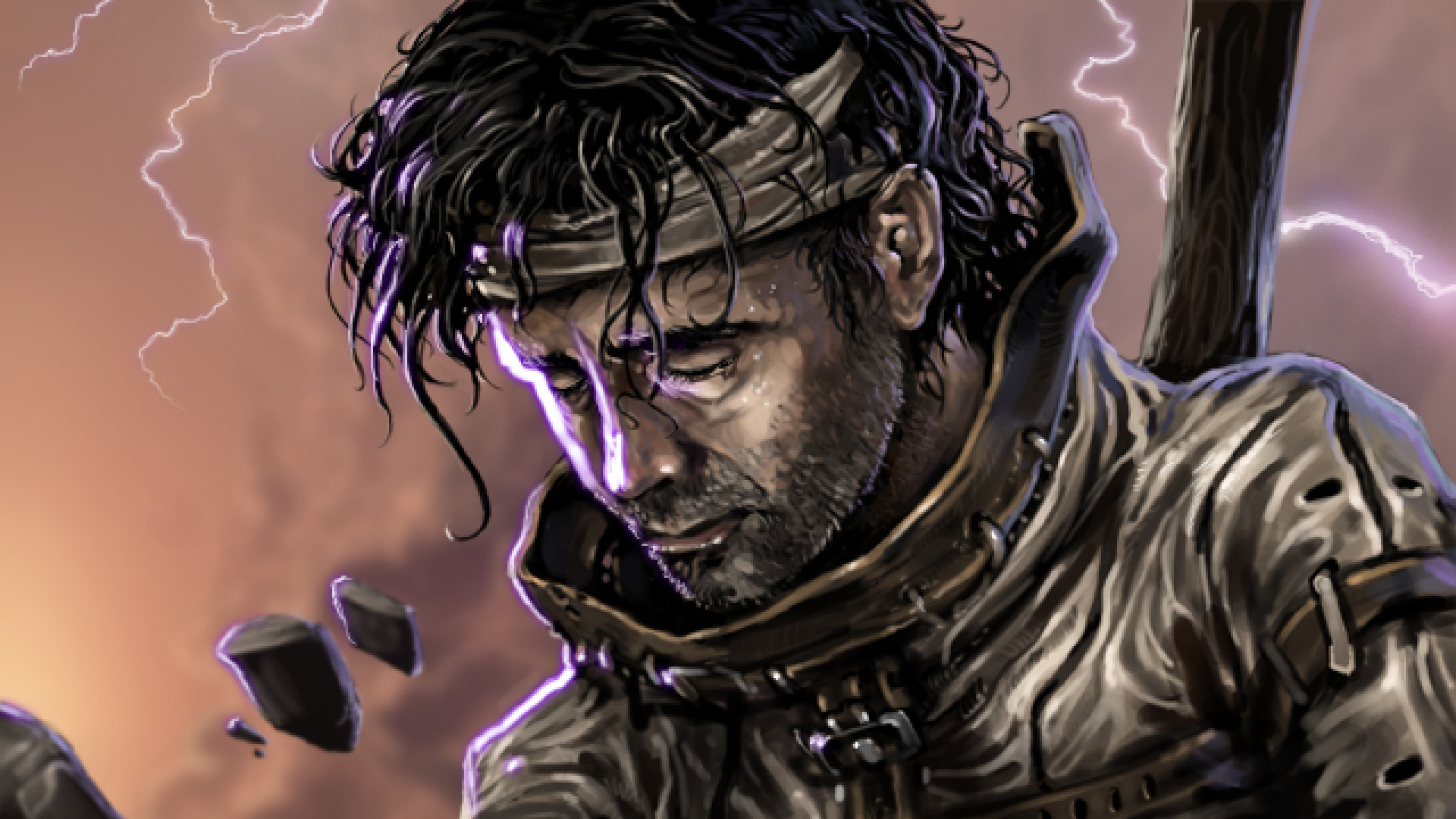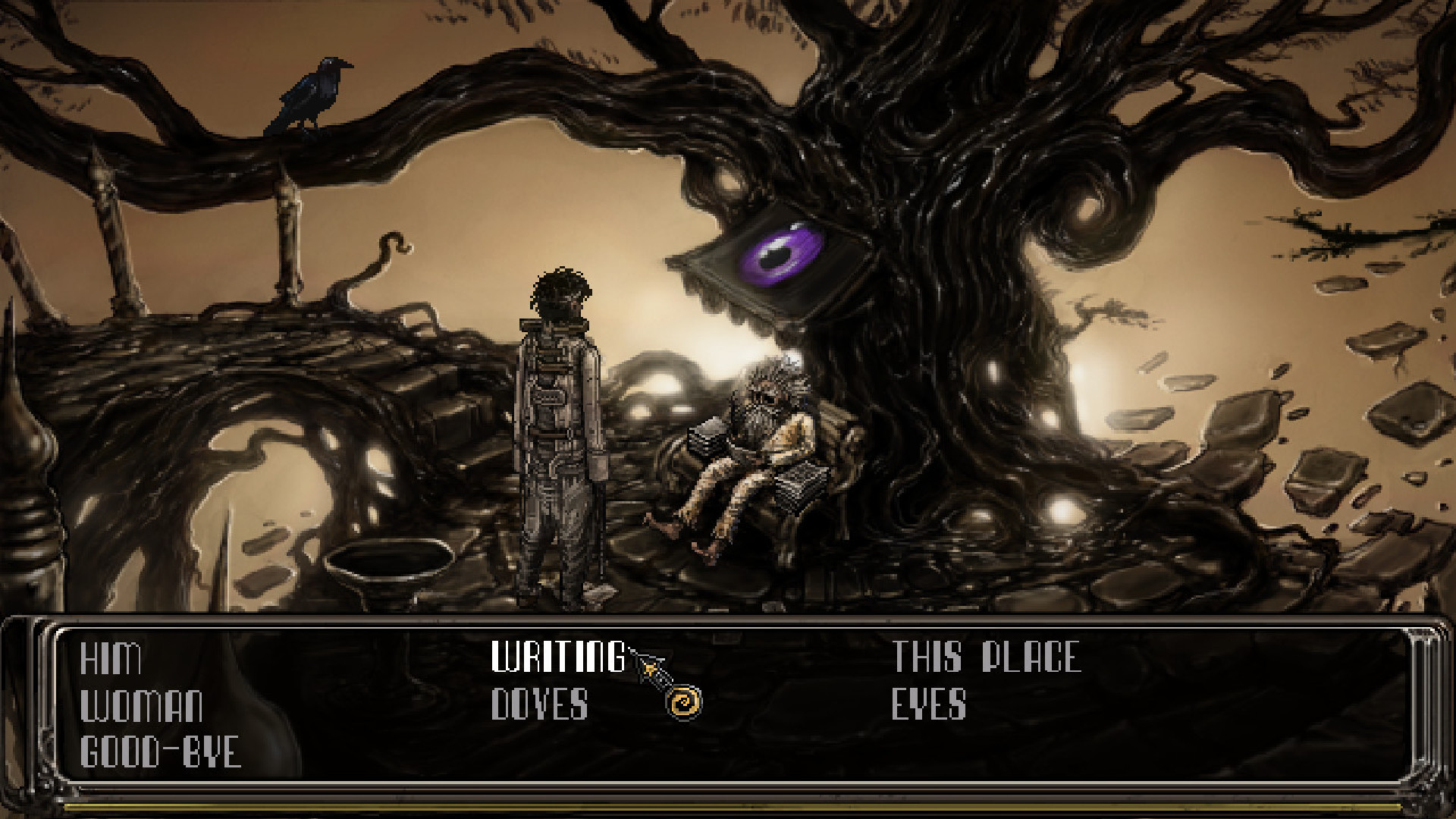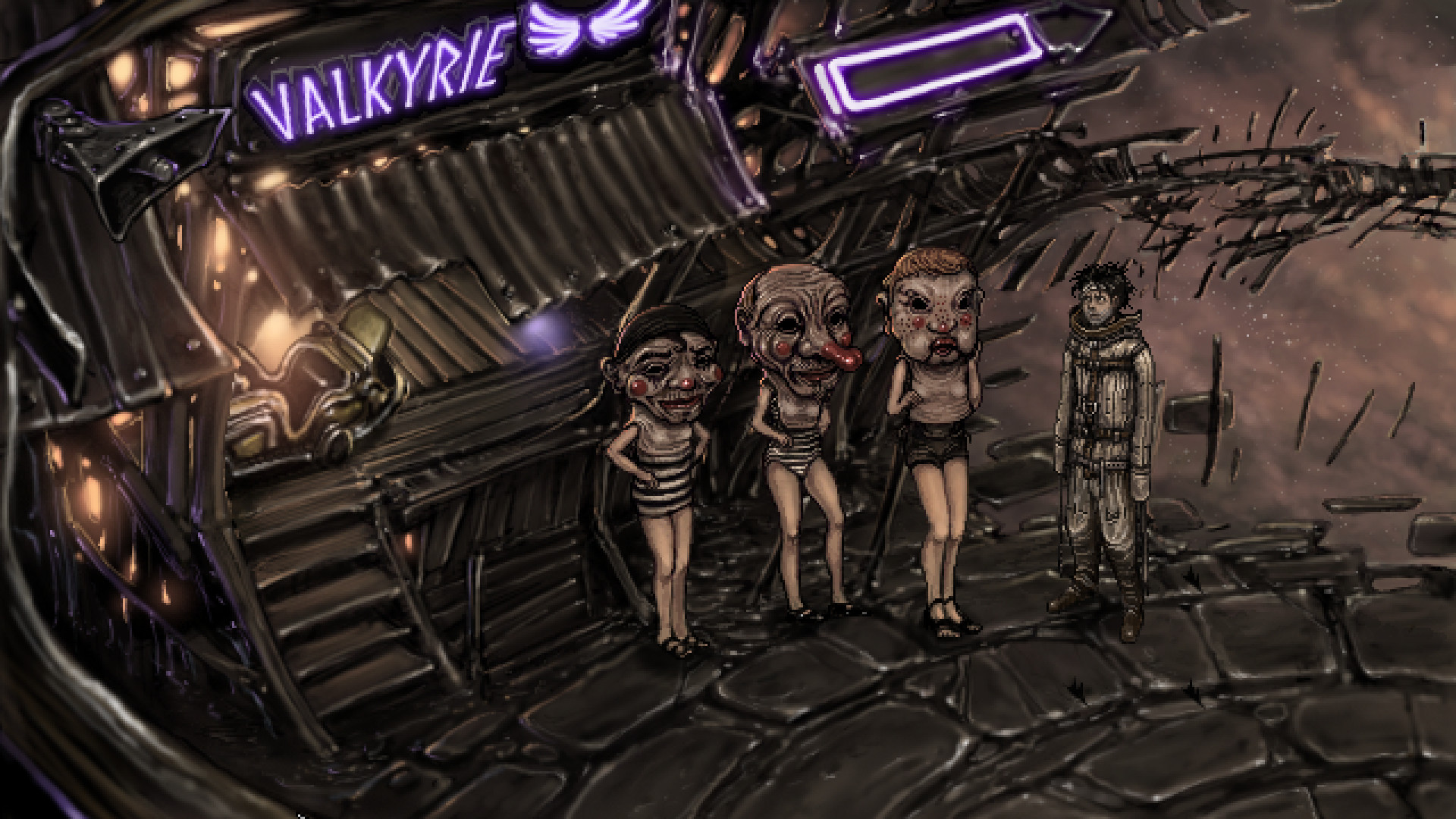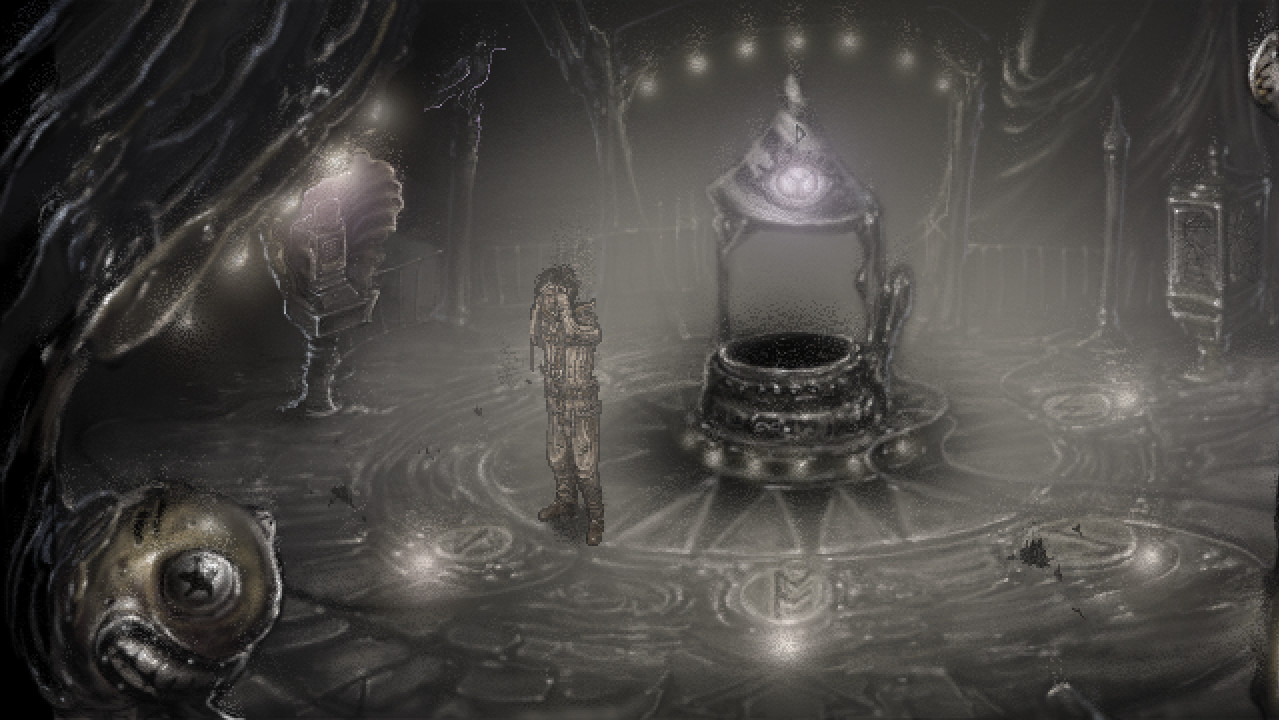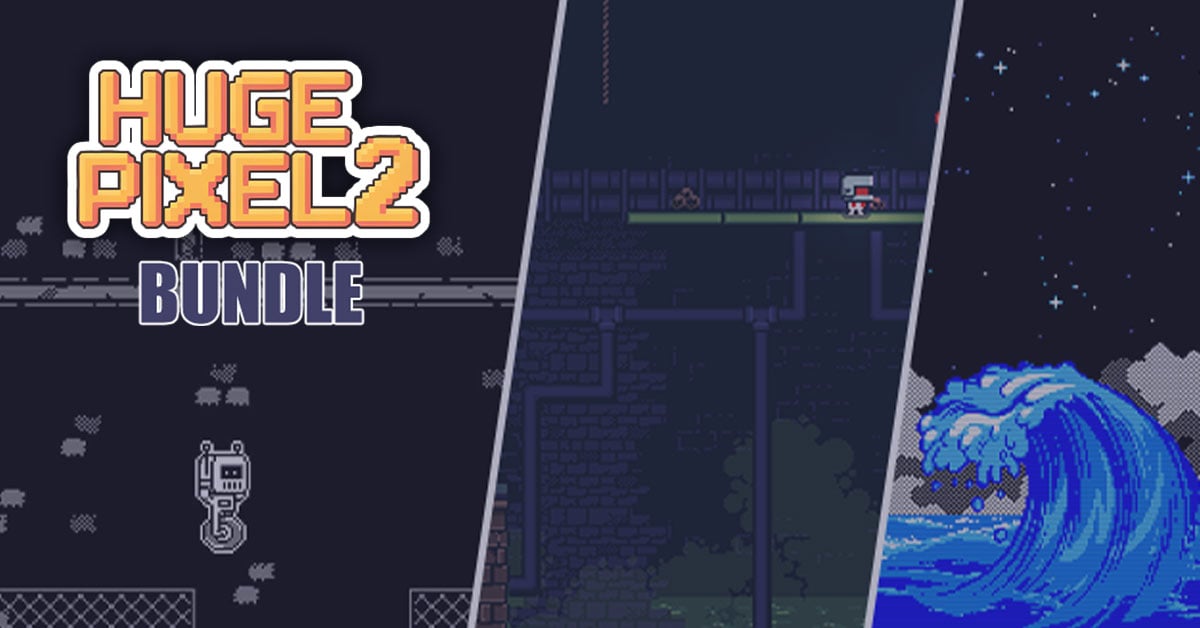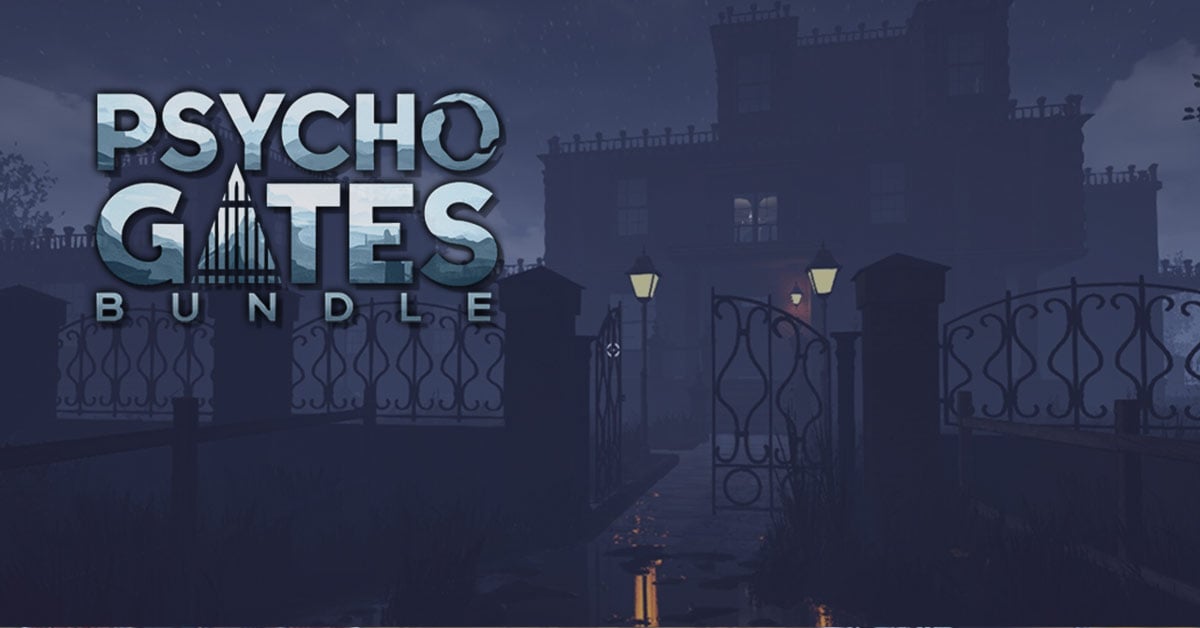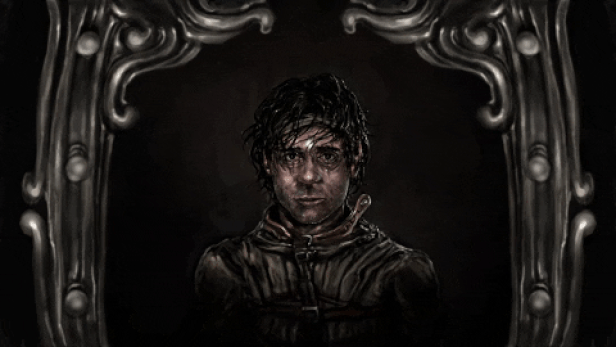
You awake in a nightmarish carnival and watch a golden-haired woman hurl herself down a bottomless well for your sake. You seek clues and help from jeering ravens, an eyeless scribe, a living furnace, a mismade mermaid, and many more who dwell within the park. All the while, a shadow shrieks from atop a towering roller-coaster, and you know that until you destroy this Dark Thing, the woman will keep jumping, falling, and dying, over and over again....

Strangeland is a classic point-and-click adventure that integrates a compelling narrative with engaging puzzles. For almost a decade, we've been working on a worthy successor to the fan-acclaimed Primordia, and we are proud, at long last, to share our second game.
Strangeland is a place like no other. Even in the real world, carnivals occupy a twilight territory between the fantastic and the mundane, the alien and the familiar. In their funhouse mirrors, their freaks, and their frauds, we see hideous and haunting reflections of ourselves, and we witness the wonder and horror of humanity in just a few frayed tents, peeling circus wagons, dingy booths, and run-down rides. Strangeland, of course, is most definitely not the real world. Indeed, unraveling the connections between this nightmare and the real world is the game's central mystery, and finding a way out is its central challenge.
As you explore Strangeland, you will need to gather otherworldly tools and win strange allies to overcome a daunting array of obstacles. Forge a blade from iron stolen from the jaws of a ravenous hound and hone it with wrath and grief; charm the eye out of a ten-legged teratoma; and ride a giant cicada to the edge of oblivion.... Amidst such madness, death itself has no grip on you, and you will wield that slippery immortality to gain an edge over your foes.
Navigating this domain of monsters and metaphors will require understanding its denizens and its enigmas. Unlike many adventure games that offer a linear experience and single-solution puzzles, Strangeland lets you pick your own way, your own approach, and your own meaning—one player might win a carnival game with sharpshooting, another by electrical engineering; one player might unravel a strange prophet's wordplay while another gathers visual clues scattered throughout the environment. Ultimately, Strangeland's story will be your story. You are not the audience; you are the player.
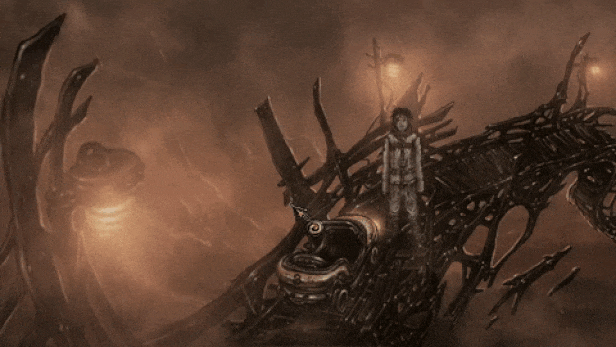

- Approximately five hours of gameplay, replayable thanks to different choices, different puzzle solutions, and different endings
- Breathtaking pixel art in twice Primordia's resolution (640x360—party like it's 1999!)
- Dozens of rooms to explore, with variant versions as the carnival grows ever more twisted
- An eccentric cast, including a sideshow freak, a telepathic starfish, an animatronic fortune-teller, and a trio of masqueraders
- Full, professional voice over and hours of original music
- A rich, thematic story about identity, loss, self-doubt, and redemption
- Integrated, in-character hint system (optional, of course)
- Hours of developer commentary and an "annotation mode" (providing on-screen explanations for the references woven throughout the game)
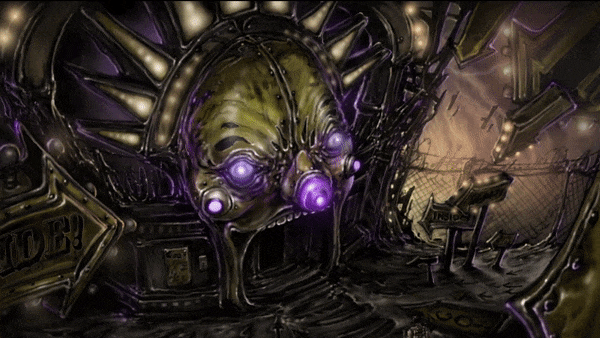

At Wormwood Studios, we make games out of love—love for the games we've spent our lifetimes playing, love for the games we ourselves create, and love for the players who have made all of those games possible. We know that players invest not just their money and time in the games they play, but also their hope and enthusiasm. And we want to make sure that players receive a rich return on that investment by creating games that provide not only a fun, challenging diversion for a few hours, but also lasting memories to keep for years.
We think the best way to achieve that with Strangeland is to adhere to the genius of the adventure genre: the marriage of challenging puzzles and thrilling exploration, on the one hand, with an engaging narrative, on the other. At the same time, we've tried to remove the punitive aspects of adventure games (deaths, dead ends, illogical puzzles, pixel hunting, backtracking, etc.). Within this framework, we add uncanny visuals, memorable characters, and thought-provoking themes. The result for Primordia was a game that has received thousands of positive player reviews, and we have refined our approach further with Strangeland. We hope it will not disappoint the players who have given us such great support and encouragement over the years! And we hope that it will find a place in the hearts of new players as well.

An adventure game mixes story and puzzles. There are puzzle games that dont have stories, and interactive stories that dont have puzzles, and such games can be masterful and beloved. But they arent, in my usage, adventure games.
Puzzles in adventures have gotten something of a bad rap over the years, in part because they are seen as obstructing the story. This image of adventure games is one in which there are story segments (dialogues and cutscenes) and puzzle segments (exploring, collecting and combining items, solving riddles, cracking codes, etc.), and they trade off in sequence. If the story is engaging and the puzzles are frustrating, this is a little bit like the experience of web browsing where before you can read the article youre looking for, you first have to prove youre not a robot by clicking on stoplights or parsing a hard-to-read CAPTCHA, or like playing some free mobile game in which interactive advertisements routinely interrupt your experience.
But in an ideal adventure game, puzzles and stories are not separate segments at all; they are marbled or meldedthe puzzles reveal both the setting and the protagonist to the player. Of each puzzle, you can say: Because such-and-such is true of this setting, this puzzle is here. And of each solution, you can say: Because the protagonist has this quality, he can overcome the puzzle this way. Unavailable solutions can also reveal the protagonist, the way that negative space can reveal a subjects form: Because the protagonist has this quality (or lacks that quality), he cannot overcome the puzzle that way.
If nothing else, an adventure game story should be a story about a protagonist who solves puzzlesotherwise, there will be an inevitable incongruity (ludonarrative dissonance in the jargon) between what the player is being told about his character (say, a hard-bitten solider) and what the game is actually revealing about the character (that he scavenges garbage, serves as a gofer for strangers, and favors eccentric, indirect solutions).
In Primordia, our protagonist was a scavenger robot aspiring to pacifism, and the world was a crumbling dystopia. Horatio viewed any salvageable piece of machinery as worth saving because his survival depended on cobbling those pieces together into a home, a companion, and a means of escape. The worlds treasures were locked away because anything not locked away had long since been plundered or destroyed; the worlds inhabitants were eccentric, reclusive, and wary of strangers because a post-apocalyptic world is not conducive to normalcy or trust. While some of Primordias puzzles are not well-integratedthey violate the consistency of the world or its characters for the sake of presenting the player another obstacleI think by and large we did a good job of revealing Horatio and his environment through the gameplay and not merely through exposition.
Strangeland is a psychological horror game. The obstacles the Stranger faces are expressions of fear, regret, and remorse. As I mentioned in a prior development diary entry, the games genesis was the death of my grandparentsin particular, processing the way my engineer grandfather had tried to solve the puzzle of my grandmothers dementia. The Strangers attempts to solve the carnivals puzzles reflect that same desperate belief that tragedy is a riddle with an answer, that grief is a cage to be escaped with the right key. The unnatural obstacles in the game can be solved by means that express both naivety and guilt: memory, pain, and metamorphosis are the means the Stranger will use to advance, though those methods will be embodied in particular tools (a dagger; a noose; a note; etc.) with symbolic significance.
Most of what the player will learn about the Stranger and Strangeland (and about the underlying tragedy that is the impetus for this nightmare) is revealed through the puzzles and their solutions. Because the puzzles generally have multiple solutions, the players course through the game will not only reveal but define the Stranger in subtle ways.
If adventure game puzzles only conveyed the games story, that would be enough. But I firmly believe that the puzzles have a second great significance: permitting the moment of kinship between player and designer, and between one player and another, that comes from solving those puzzles.
It is customary to praise sensible puzzles as logical and to criticize inscrutable puzzles as suffering from moon logic. I think this is a bit off. Very few puzzles adhere to formal logic. When we say a puzzle is logical, what we really mean is that we understood the rules that governed it, and were able to figure out how to employ those rules to solve it. That means puzzles are really about communication: the designer is speaking to the player (through visual cues, quips, failure messages, etc.) and trying to explain the rules. Such communication requires a shared language. But even a shared language doesnt ensure communicationas any number of spats attest.
As a kid growing up in Washington, D.C., I had a lot of international classmates whose parents had immigrated or worked at the various embassies. My family became good friends with an Australian family whose three sons were particularly bright. But one spelling test, the youngest son missed what the teacher felt was an obvious word: he had, inexplicably, written urb in lieu of herb. The teacher demanded an explanation. I thought it was some kind of slang for a city, he answered. The teacher wrote the correct spelling on the blackboard. But thats [u]h[/u]erb! Davie protested, pronouncing the H.
So too with puzzle logic. Every designer has his or her own dialect and accent, not to mention idioms and tics. Every player has the same. Even when we share a language, even when weve learned that language from the same canonical works, we all speak it in our own way.
Part of game development is figuring out how to account for this. Weve had a months-long iterative dialogue with dozens of testers, broadening the ways we communicate to the player and expanding the number of possible solutions and the means by which the player can be nudged along. But still! The poor designer asks: Im thinking of an animal that is gray, has big ears, and a short tail; it lives in dry climates and can move at over 20 miles an hour. The poor player answers: A jackrabbit! The poor elephant hangs his head.
For all these potential miscommunications, however, there is the sublime moment when the player and designer at last develop a common tongue. The player reads the games cues in the manner the developer intended; the game parses the players inputs in the way the player intended; and suddenly, moon logic gives way to a moon landing. We have bridged that gulf between two minds and received the greatest of validations: We are understood!
That eureka moment has always drawn me to adventure games as a player: the feeling of an earned kinship with the designer and other players alike. And it matters even more to me as a developer. As Ive said before, the core value that I hope to convey in the games I design is humanism, and part of the humanistic project is building bridges. More than any other success, the most gratifying part of game development is when we forge a connection with a player, whether through the games themes, its art, or its puzzles. And the very best connections combine all of that: a puzzle expressing the games theme is solved in a manner that reveals the protagonists character and is understood by the player because weve achieved a common language. In that moment, there is a unity between player, designer, and character, one that is peculiar to the enduring genre of adventure games.
Minimum Setup
- OS: Ubuntu. Debian
- Processor: 2.7 GHz Dual Core (and above. can run on single core)Memory: 2 GB RAM
- Memory: 2 GB RAM
- Graphics: OpenGL. DirectX 5
- Storage: 2 GB available space
[ 6381 ]
[ 5869 ]
[ 750 ]
[ 1993 ]
[ 878 ]

